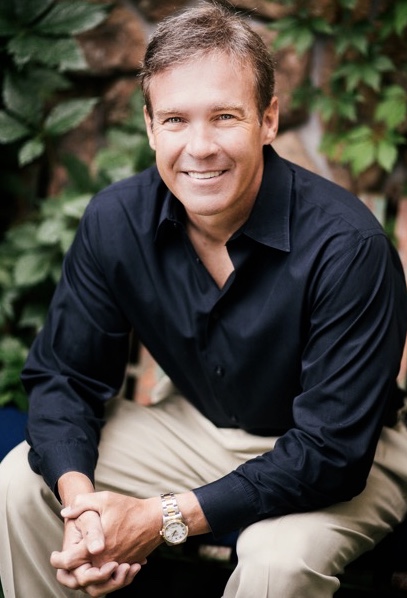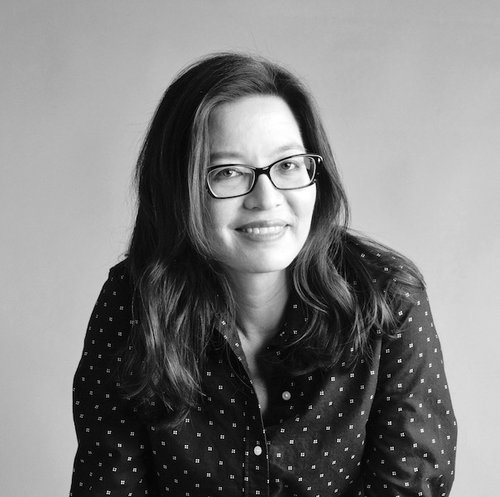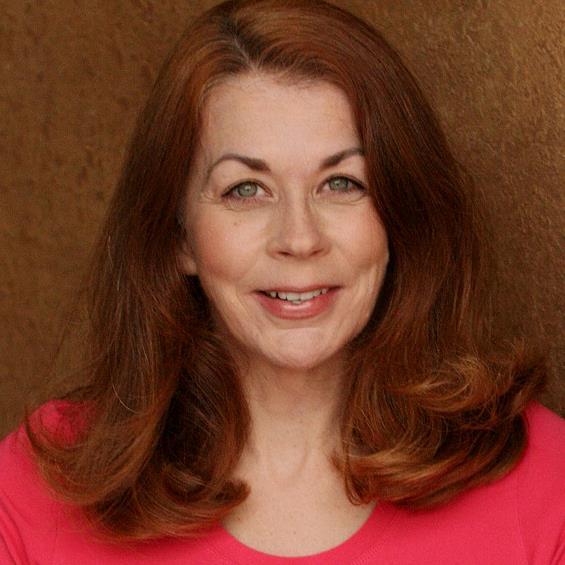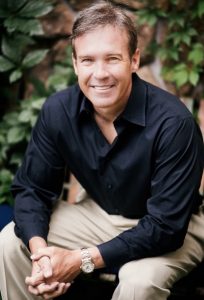 As for most debut authors, the path to publication for thriller writer Mike Houtz has been a series of incredible learning experiences. I sat down with him recently to talk about his new book “Dark Spiral Down,” the joys of going with an independent publisher and the power of just saying yes when the opportunity presents itself.
As for most debut authors, the path to publication for thriller writer Mike Houtz has been a series of incredible learning experiences. I sat down with him recently to talk about his new book “Dark Spiral Down,” the joys of going with an independent publisher and the power of just saying yes when the opportunity presents itself.
Open Mic: First, tell me a bit about “Dark Spiral Down.”
Houtz: Dark Spiral Down is a story about a young man who grew up in a Shaolin monastery from the age of six until his mid-teens, and then returned to the United States with his older brother. We pick up his story at age 26, when he is now a professional MMA fighter, and his journey of looking for his missing brother, who is a Delta Force operator, back in Southeastern China where they were raised. The brother goes missing while recovering a stolen invention capable of transforming the human race or destroy it if the pursuing North Korean agents find it first. Cole Haufner’s only objective is finding his missing brother, but he finds himself embroiled in this battle over this device. Eventually, he is forced to choose between his brother and the invention.
Open Mic: You published this through an independent publisher, The Wild Rose Press. How has the process been for you so far?
Houtz: For me it worked extremely well because from early on in the process the communication was really outstanding. From their board and editors, and even the president, their organization was quick and well thought out. It felt like I was being taken care of as a new author quite well. And from what I can tell, the art of marketing and promoting your work doesn’t really stop when you hit a Big Five publisher. Most authors are responsible for a lot of the communication to their readership. I don’t feel any less of an author having gone with the smaller outfit, and in fact I think it was beneficial in that it forced me to learn the entire process of publishing and not just the writing portion.
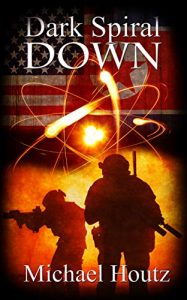 Open Mic: How has the marketing side of all this been for you?
Open Mic: How has the marketing side of all this been for you?
Houtz: There has been a lot of benefit for me from the marketing side. Number one – and I never would have predicted this – I actually learned more about my own book by answering all the various types of questions than I ever realized after I finished the story. It sounds really strange to say that, but I’ve learned not only to shorten and tighten the communication of what the book is all about, but I’ve had to actually think a lot about what I wrote. It has been a pleasure to discover some new nugget, which I never would have predicted. I really enjoy talking with people that have read the early copies, and I get a real thrill out of their effort to market for me because they loved the story so much. My biggest challenge was that I didn’t know what I didn’t know. I’m a middle age guy, and I can’t say social media was up my alley, but I am learning the different venues for marketing, discovering who to talk to because the vast majority of the effort is talking with people that are behind the scene – either editors or reviewers or fans – and so that was a new thrust for me. It has taken a bit of thought, and has been frustrating at times, but all in all I’ve actually enjoyed this process a lot more than I predicted I would.
Open Mic: Did you also go through the agent-seeking process first?
Houtz: I didn’t pursue agents in the way most people imagine. The whole process of writing the novel to obtaining a contract was very quick. I submitted to a book contest looking for professional feedback from the reviewers and the judges, and this particular contest offered that. I actually had forgotten about it, and months later I received a phone call congratulating me on winning the Zebulon Award. My jaw hit the floor because that wasn’t my intent. A few months later, I took that award and went to a conference in Denver, where I met the president of my current publisher. I thought, ‘Well, let’s try this pitch thing.’ I had never done it before, and I thought I would give it a whirl and gain some additional experience. You’re given 10 minutes to explain the last two years of your life in a way that piques their interest. Surprisingly, I didn’t completely screw up my opportunity, and she loved the premise and wanted the whole manuscript. Just like the award, I wasn’t prepared for next steps. I made a chapter change request and sent it in a couple weeks later. Within a few days, a senior editor contacted me and said she loved the manuscript and would talk with their acquisition committee about a contract. She explained it usually took three or four weeks for a final verdict. I thought ‘great, here’s where the dream ends.’ But 36 hours later, I received a signed offer on my desk. Things happened way too fast for an agent search.
Open Mic: Why did you decide to go with an independent publisher rather than continuing the agent search?
Houtz: I thought I would spend years searching for that one agent the same way everybody does. This wasn’t what I had in mind. I said to myself, ‘Why don’t I say yes and get out of my own way?’ Again, I didn’t have a clue about publishing and therefore decided to just say ‘yes’ and not make this more difficult just because I had a vision of going in one specific direction. When a door opens, you have to be prepared to step through to the other side. The goal was to publish with someone with a good reputation for where they’re at in the marketplace. I thought it would be crazy for me not to say yes. With my next project, I’m planning on securing an agent.
Open Mic: These things are always such a learning experience. What has been the biggest lesson you’ve learned so far?
Houtz: It was a realization I was a pretty good storyteller, but I can’t say I was a great writer. Having gone through the editing process this past year with my publisher, I came to realize I didn’t know squat about the function of correct writing, but I was really good at creating a story out of thin air. Looking back, I wondered why I won a contest and why somebody wanted to publish me. I suppose if there was any lesson there it is that it has given me confidence in knowing that I could come up with a strong plot, and that I could actually learn how to write properly and turn the manuscript into something that’s readable for both people in the industry and in the audience.
Open Mic: Your career has been in medicine. What prompted you to become a writer?
Houtz: Like most of us, I’ve had an interest in writing ever since I was a kid. In my 20’s I wrote a few little stories here and there, fanzine type stuff, but nothing really came of it. I also like food and air conditioning, and since I didn’t think writing was necessarily going to be a great financial choice, I put the thought away. Fast forward, and now my wife is also in medicine and we were both working crazy hours. Our two boys were entering school, and we’re watching other people raise our kids. There were some behavioral issues because she and I weren’t that solid foundation in their day to day to life. I thought if we continued down this path the kids are going to end up on drugs or in a psychiatrist office. So, we had probably a good six months of discussions about some sort of solution. I finally made a really hard decision to retire early and be a stay at home father. I’d written a list of how I’d continue my own intellectual interests and writing was my first choice. I’m not going to sit around and play video games with kids on the X-Box all day. I still needed something of personal value and achievement. Tapping into my old dream of writing novels was a result from our effort to be better parents. I plan on following that dream long after they move from home.
OpenMic: Most lawyers who write do legal thrillers. Why not do a medical thriller?
Houtz: Funny you should mention that. From the start, I was working on a medical thriller, but this other storyline just kept hitting me and hitting me to the point where I became almost paralyzed. One morning, I stared at a blank screen for almost an hour. I felt a burning compulsion to write this other book. I read authors such as Robin Cook, Michael Crichton, and Tess Gerritsen, and that was what I wanted my medical thriller book to be. But I’d read about this father whose son was taken by his ex-wife down to South America against his wishes. I have a very strong passion for children’s rights and children’s issues, and as I read the account of his struggles through the years trying to regain his son back in his life, I came up with this heroic character who rescues children kidnapped and taken out of the U.S.. I felt this anger over the situation and needed to write this book. I couldn’t rest until I’d finished the manuscript.
Open Mic: Did you use an outside editor at all?
Houtz: I did. My aunt has written a number of non-fiction books, and she referred me to someone who really knew her stuff. I knew my structure was nonexistent, and she helped me develop a framework making it more salable. She was really critical in getting me beyond my clunky, mechanical writing. After I got the contract working with my current editor, I thought my novel was pretty good. But when I saw those red marks on the page, I thought maybe she just dipped it in a vat of red ink and sent it back. I received a real education on what I needed to learn before considering myself a professional writer.
Open Mic: As with many thrillers, your story is global in scope. How did you do your research? Do you have about a million air travel bonus miles now?
Houtz: I do travel a fair amount, but I have to admit that I’ve never been to the region I wrote about. I met a gentleman not long ago who actually lived in that part of the world for almost 20 years, and I let him read an early copy. He became pretty animated, saying he remembered this or that and asking when I’d been there. I had to admit to him that it was Google Earth and a lot of online research and reading other books because I had never stepped foot in that part of the world. To get that kind of sign-off from somebody who lived in that area was a massive amount of relief. I studied everything from wind currents to temperatures to humidity to the trees and the fauna that grows in that region. I studied elevation changes with Google Earth. I did street-level 3D research up and down, so I felt even though I hadn’t physically been there I’d done my best in terms of becoming immersed in what was available out there.
Open Mic: Which comes first for you – characters or the plot?
Houtz: Strangely enough, storyline comes to me very naturally, I don’t know why, I think that’s just who I am. Character creation for me is simply a byproduct from the plot. Once I choose the motivations of the story, that drives all character interactions.
Open Mic: Are you an outliner or seat-of-the-pantser?
Houtz: I tip the scale toward pantser. I would like to outline more because that would save me a lot of time. I tried heavy outlining a couple times during the process for this book and it ended up being a complete waste for me in that I went off script almost immediately. My process is writing down the number of chapters I’m shooting for, approximate word count, and whose point of view for each. I’ll write a few notes for location, plot points, and other motivations. The actual storyline is a movie playing in my head for each chapter, and I write what I’m visualizing. That works for me because of the flow. I’m curious if I’ll evolve down the road.
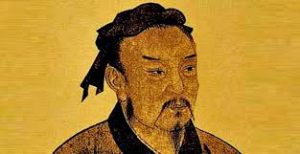 Open Mic: I like to end on a fun question. Let’s say I can put you together for dinner and a conversation with just one of the following three people. Who would you choose and why? Your options are: martial arts icon Jean Claude van Damme, Chinese philosopher and general Sun Tzu, or the great fly-fishing champion Joan Wulff.
Open Mic: I like to end on a fun question. Let’s say I can put you together for dinner and a conversation with just one of the following three people. Who would you choose and why? Your options are: martial arts icon Jean Claude van Damme, Chinese philosopher and general Sun Tzu, or the great fly-fishing champion Joan Wulff.
Houtz: Oh, that’s brutal. I’m going with Sun Tzu. It is incredible to think that somebody from that long ago still has immense relevance in today’s world spanning multiple cultures and eras of human history. Talk about staying power. The lasting vision he had really speaks to his brilliance in understanding not just the world he knew, but what drives human behavior into the future. His words work in many different industries and not just warfare. Maybe he was a good fly fisherman too?

